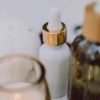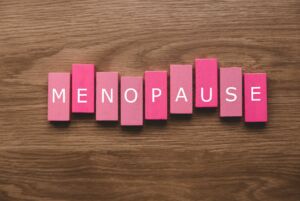Pregnant and Considering CBD? Here’s What You Should Know
Introduction
If you’re pregnant, you may have heard of CBD and its many potential benefits. But before you start taking it, it’s important to understand how it works and what the risks are for using it during pregnancy. As more and more people turn to alternative treatments, CBD has emerged as a popular option for a variety of conditions. But for pregnant women, there are concerns about the safety of using CBD during pregnancy. In this article, we will explore the risks and benefits of CBD use during pregnancy and what expecting mothers should know before considering CBD.
What is CBD?
Cannabidiol, or CBD, is a compound found in the cannabis plant. Unlike tetrahydrocannabinol (THC), CBD does not produce a high or intoxication. Instead, CBD is known for its potential therapeutic properties, such as reducing anxiety and improving sleep.
Is CBD safe during pregnancy?
There is currently not enough research to determine whether CBD is safe for pregnant women. While some studies suggest that CBD may have potential therapeutic benefits for certain conditions, the effects of CBD on fetal development and pregnancy outcomes are still largely unknown.
As a result, many healthcare providers advise pregnant women to avoid CBD use until more research is available. If you are considering CBD during pregnancy, it is important to talk to your healthcare provider about the potential risks and benefits and make an informed decision based on your individual situation.
Potential risks of CBD during pregnancy
While the risks of CBD during pregnancy are largely unknown, there are some potential risks to consider. One concern is that CBD may interact with other medications or supplements that you are taking, which could have negative effects on fetal development.
Another potential risk is that CBD products may be contaminated with harmful substances, such as heavy metals or pesticides. It is important to only purchase CBD products from reputable sources such as us here at Savage Cabbage, we’re the exclusive distributors of the Worlds Most Trusted Hemp extract – Charlotte’s Web. Make sure you carefully review the ingredients and third-party testing results before using any CBD product during pregnancy. For further advice and guidance, please do reach out to us here at Savage Cabbage if you’re concerned about your purchase.
Potential Benefits of CBD and Pregnancy
CBD oil has been shown to have many benefits for pregnant women. It has been used to treat nausea, and anxiety and promote relaxation during pregnancy. CBD oil can also help with sleep issues that often come up during pregnancy. The calming effects of CBD will help you get a good night’s rest so you feel refreshed in the morning and ready to take on whatever comes your way!
While the risks of CBD during pregnancy are largely unknown, some women may still consider using CBD for its potential therapeutic benefits. For example, some women report using CBD to help maintain health and improve general wellness. CBD can also help promote relaxation and alleviate stress, helping improve sleep quality. You can find out more about the benefits of CBD in one of our other blog posts here.
However, it is important to note that there is currently not enough research to support the use of CBD for these conditions during pregnancy.
How Does CBD Work?
First, it’s important to understand that our bodies have an endocannabinoid system (ECS). The ECS is a complex network of receptors and molecules that help regulate a wide range of bodily functions, including mood, appetite, sleep, and immune response.
CBD uniquely interacts with the ECS. Unlike THC, the psychoactive compound in cannabis that produces a “high,” CBD does not directly bind to the cannabinoid receptors in the ECS. Instead, it works by enhancing the activity of existing cannabinoids in the body, particularly anandamide, which is sometimes called the “bliss molecule” due to its mood-boosting effects.
CBD also interacts with other receptors in the body, such as the serotonin receptor, which plays a role in regulating mood and anxiety. By modulating the activity of these receptors, CBD may help promote a sense of calm and relaxation.
Another way that CBD may work is by reducing inflammation. Inflammation is a natural response by the body’s immune system to injury or infection, but chronic inflammation can contribute to a wide range of health issues, including autoimmune disorders, arthritis, and heart disease. Studies have shown that CBD may help reduce inflammation by inhibiting the production of inflammatory molecules in the body.
CBD also has antioxidant properties, meaning that it may help protect cells from damage caused by free radicals. Free radicals are unstable molecules that can damage DNA and other molecules in the body, leading to cell death and disease. By neutralizing free radicals, CBD may help prevent oxidative stress and promote overall health.
One important thing to note is that the effects of CBD can vary depending on the method of delivery. For example, taking CBD orally may result in a different experience than applying a topical CBD cream. Additionally, individual factors such as genetics, metabolism, and overall health may influence how CBD interacts with the body.
Overall, the science behind CBD is still in its early stages, and more research is needed to fully understand its mechanisms of action. However, the evidence so far suggests that CBD may have a range of potential therapeutic benefits for a variety of health conditions. If you’re interested in trying CBD, it’s always a good idea to talk to your healthcare provider first to determine if it’s right for you.
The Entourage Effect and Full Spectrum CBD
If you’ve been exploring the world of CBD oil, you may have come across the terms “entourage effect” and “full spectrum.” These are important concepts to understand when it comes to CBD and its potential benefits. In this article, we’ll explain what the entourage effect is and how it relates to full-spectrum CBD oil.
What is the Entourage Effect?
The entourage effect is the idea that the compounds in the hemp plant work together to produce a synergistic effect. In other words, the whole plant is greater than the sum of its parts. This means that when you consume a full-spectrum CBD oil such as those produced by Charlotte’s Web, you’re getting all of the compounds found in the plant, including cannabinoids, terpenes, and flavonoids.
Cannabinoids are the chemical compounds found in hemp, including CBD and THC. Terpenes are aromatic compounds that give plants their unique scent and flavour. Flavonoids are phytonutrients that give plants their vibrant colours. All of these compounds have potential therapeutic benefits.
When these compounds work together, they may enhance each other’s effects. For example, studies have shown that terpene myrcene can increase the absorption of cannabinoids in the brain.
What is Full Spectrum CBD Oil?
Full spectrum CBD oil is a type of CBD oil that contains all of the compounds found in the cannabis plant, including cannabinoids, terpenes, and flavonoids. This means that it contains trace amounts of THC, the psychoactive compound found in cannabis.
It’s important to note that the THC levels in full spectrum CBD oil are very low. This is not enough to produce any psychoactive effects, but it may still show up on a drug test. If you’re concerned about drug testing, you may want to consider a broad-spectrum CBD oil which has had all the THC removed.
The Benefits of Full Spectrum CBD Oil
Because full-spectrum CBD oil contains all of the compounds found in the cannabis plant, it may have a wider range of potential therapeutic benefits. Studies have shown that full-spectrum CBD oil may be more effective at reducing inflammation than CBD isolate. It may also have anti-anxiety, anti-depressant, and neuroprotective effects.
One study found that full-spectrum CBD oil was more effective at treating inflammatory conditions in mice than CBD isolate. Another study found that full-spectrum CBD oil was more effective at reducing anxiety in mice than CBD isolate.
In addition to its potential therapeutic benefits, full-spectrum CBD oil may also have a better taste and smell than CBD isolate. This is because the terpenes and flavonoids in the oil give it a more complex flavour and aroma.
Full Spectrum CBD
Full spectrum CBD contains all of the natural compounds found in the hemp plant, including CBD, THC (tetrahydrocannabinol), other cannabinoids, terpenes, and flavonoids. While the amount of THC in full spectrum CBD products is limited. it can still potentially cause a positive drug test result.
The entourage effect is the theory that all of the compounds in full-spectrum CBD work together to provide a greater benefit than each compound could provide on its own.
Broad Spectrum CBD
Broad-spectrum CBD contains all of the same natural compounds as full-spectrum CBD, except for THC. This makes it a good option for those who want to avoid any potential psychoactive effects of THC or who are subject to drug testing.
While broad-spectrum CBD doesn’t have the potential for the entourage effect that full-spectrum CBD does, it still contains a range of beneficial compounds that work together to provide health benefits.
CBD Isolate
CBD isolate is the purest form of CBD available. It’s created by extracting CBD from the hemp plant and isolating it from all of the other compounds. This means that CBD isolate doesn’t contain any THC or other cannabinoids, terpenes, or flavonoids. It is considered less natural than its counterparts and is produced in a laboratory environment.
While CBD isolate is the most refined form of CBD and has no potential for causing a positive drug test result, it also doesn’t provide the potential benefits of the entourage effect.
What is the best CBD product for me?
CBD has become increasingly popular over the years due to its potential health benefits. As a result, there are now many different types of CBD products available on the market. Below we will discuss the differences between CBD oils, CBD capsules, CBD gummies, and CBD topicals. You can also use our product finder to help pick the right product for you.
CBD Oils
CBD oil is one of the most popular and widely used forms of CBD. It is made by extracting CBD from the cannabis plant and diluting it with a carrier oil such as coconut oil or hemp seed oil. CBD oil can be taken sublingually (under the tongue) or added to food and drinks.
CBD oil is often preferred over other CBD products because it is easy to use and provides quick relief. It is also customizable, allowing users to adjust their dosage according to their needs.
CBD Capsules
CBD capsules are another popular form of CBD. They are essentially CBD oil in a pill form, and are taken orally. CBD capsules are often preferred by people who don’t like the taste of CBD oil or who want a more convenient method of consumption.
CBD capsules are easy to take and provide a consistent dosage of CBD. They also have a longer shelf life than CBD oil, making them a good option for people who don’t use CBD regularly.
CBD Gummies
CBD gummies are a fun and tasty way to consume CBD. They are essentially CBD oil infused into a gummy candy. CBD gummies come in a variety of flavors and shapes, making them an enjoyable way to take CBD.
CBD gummies are a good option for people who don’t like the taste of CBD oil or who want a discreet method of consumption. However, they may take longer to provide relief than other forms of CBD because they need to be digested before the CBD can enter the bloodstream.
CBD Topicals
CBD topicals are products that are applied directly to the skin, such as creams, lotions, and balms. They are often used for localized pain and inflammation, as well as for skin conditions such as acne and eczema.
CBD topicals work by penetrating the skin and interacting with cannabinoid receptors in the body. They provide targeted relief and are generally preferred by people who don’t want to ingest CBD orally.
How Much CBD Should I Take While Pregnant?
As with any medication, it’s important to talk to your doctor or midwife before taking CBD. They’ll be able to tell you how much you should take and whether it’s safe for you at all. If they give their approval (and if you’re not already pregnant), start with a small dose of 10-15mg per day and see how that works out for a few weeks. If things are going well, increase the amount slowly until the desired results are achieved.
However, keep in mind that there is no evidence yet showing exactly what amount is safe during pregnancy. If in doubt, speak to your midwife, doctor or healthcare provider. You can also reach out to our friendly team to help you decide what product is best for you.












